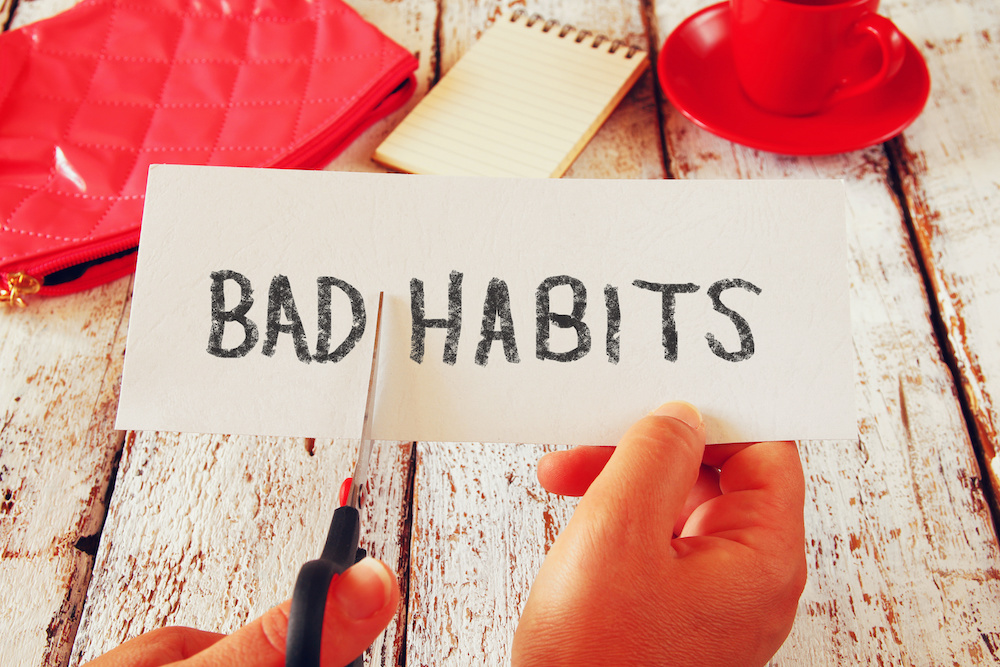Understanding how to change toxic behavior is something that can positively influence numerous areas of your life.
Not only will you become a more effective and trusted communicator, but you’ll also be happier overall.
Using this guide, you can effectively eliminate personal toxic behaviors while identifying negative patterns in others to live happier lives.
How to Change Toxic Behaviors
There’s nothing worse than being stuck in a loop of toxic behaviors.
Fortunately, there are multiple ways that even the most stressful groups of people can change for the better.
Let’s get into the most effective ways you can eliminate toxic behaviors.
Tip 1: Stop Talking and Start Listening
It’s more often than you’d think that people become inadvertently toxic.
There’s truth to the saying, “No one is born evil,” as we all start from humble beginnings.
Toxicity develops over time due to exposure to challenging situations and defensiveness.
The development of toxicity can also come from not listening to what other people are saying and going straight on the defensive.
Listening to judgments and critiques of oneself can be challenging, but it can also provide invaluable knowledge.
It’s important to give everyone their chance to be listened to from time to time, rather than just heard.
When entering a conversation, you must keep an open mind and allow the other party to convey their experiences and feelings.
Don’t minimize the gravity of their feelings and certainly do not interrupt the dialogue, as this establishes a toxic pattern.
You can foster healthy relationships with others by stopping talking and starting listening.
Tip 2: Come to a Realization
One of the first steps to healing from toxicity is to realize that bad behavior from you or another person was the source of the toxic relationship.
After this epiphany, you’ll find it’s considerably simpler to begin healing from the situation and work on this type of behavior.
This is particularly important for the aggressor, as they need to understand the weight of the situation and their part in it.
If you think you’re the one being toxic, acknowledging your behavior is the first step you can take to making reparations in your personal life.
It’s important because those you have hurt will expect you to understand what you’ve done and how it affects them.
Doing so can help break the cycle, causing you to be a deterrent rather than an invitation.
No doubt, realizing you’re the toxic one in the situation leads to difficult conversations, especially as a defensive personality.
However, it will make a difference when you call yourself out for your mistakes.
Using professional emotional resources like a clinical psychologist to work on your mental health can also be beneficial.
Tip 3: Learn to Accept Responsibility
Along the same vein of realizing you could be the toxic one, it’s time to take responsibility for difficult situations.
Remember, this does not only relate to taking personal accountability but also expecting to be held accountable by others.
As a toxic personality, it’s easy to make excuses to “explain” your pattern of behavior, but it’s a defense mechanism to avoid negative consequences.
You must understand you have hurt people in your close circle and will continue to do so without acceptance.
When you become responsible for a situation, you’ll do anything to reduce poor behaviors.
Over time, you’ll understand that excuses don’t do anything but put a bandaid on the wound.
The more responsibility you take, the easier it will be for others to come to you.
This is one of the essential tips to help repair bridges and relationships that may have failed.
With responsibility, you can move forward with a more positive mindset in your future relationships.

Tip 4: Get Rid of Jealousy
Apart from developing toxic behavior due to past trauma, jealousy is another massive contributor.
When we see others with what we don’t, jealousy can rear its evil head and take over our entire being.
Envy is one of the major destructors of interpersonal relationships, and it’s time to let it go.
Most jealousy stems from insecurity, which is something every toxic person can work on.
It can be helpful to list things you’re insecure about in your life.
Anywhere you’re dissatisfied, you can make action plans to improve these areas, eliminating the insecurities and boosting your confidence.
Whether it’s getting out of debt so you can enjoy more outings or changing careers to feel more successful, the options are endless.
You’ll find you’ll be far less likely to be envious of the position of others when you’re happy with yourself.
This will make you more approachable and assist you with enjoying time with friends and loved ones considerably more.
Tip 5: Stay Away from Drama
If there’s one thing that goes hand-in-hand with toxicity, it’s drama.
Some people perpetuate the drama while others feed off of its existence.
As a newly non-toxic person, you must stay away from it.
How often have you said, “I don’t make drama; it just follows me!”
It’s a common excuse among toxic groups. If you showed no interest in being dramatic, you wouldn’t have drama in your life.
Being the center of attention can be a habit for many, and you may display negative behaviors to get attention.
Even though being paid attention to is an essential human need, driving drama isn’t the way to get it.
Instead, you want to be the type of person people enjoy being around rather than fear.
Stay away from the torrential storm that drama brings to everyone’s life.
Choose to walk the path of peace, giving you more inner contentment and making you better to be around.
Tip 6: Implement Boundaries
It’s far too often people are taken advantage of because they haven’t developed boundaries for themselves.
Even though it can be easy to say, “My friends should know what I do and don’t like,” there’s no possible way they would know without being told.
Setting boundaries will not only give you mental peace but can also help to foster healthier interpersonal relationships.
Being the type of person that continually gives everything to everyone around them can be overwhelming, even for the most philanthropic personalities.
Over time, you’ll find yourself getting worn down and may even experience feelings of being used.
This can turn into considerable resentment you may have never felt before.
When you choose to set boundaries, you’re telling everyone around you what you’re comfortable with.
It can also be a fantastic way for you to realize other people have personal limitations.
Making a note of both these factors can help you build more positive and mutually-supportive relationships.
Tip 7: Consider Neuro-Linguistic Programming
Neuro-Linguistic Programming (NLP) is a therapeutic approach to helping individuals look inward.
You’ll focus on the fundamentals of your being, including subconscious processes that make you who you are.
From confidence to non-verbal communicative cues, NLP covers all bases of how you act as you do.
Not only does Neuro-Linguistic Programming help with your subconscious but your conscious actions as well.
When you repair the foundations of your behaviors, you can behave better with enhanced confidence and understanding.
You’ll also be able to reap the benefits of all your best traits, eliminating the negative ones over time.
When you participate in an NLP session, you’ll master the art of looking at situations differently.
When looking outside of yourself, you can better analyze how your behaviors affect others.
This process can help you refine your communicative skills, fostering healthier interpersonal connections.
There are plenty of valuable resources you can use to learn more about NLP and how it can help, including:
- Improve Your Relationship Fast with NLP – Ian Tuhovsky
Improve Your Relationship Fast with NLP is a phenomenal guide that will help you work on your familial and partner relationships from the ground up.
As a part of a psychological coaching series, this installment is essential for anyone interested in reducing their toxicity.
It will help you identify the three triggers of conflicts, enhancing your communicative skills.
Not only does this book help with existing relationships but engaging in new ones as well.
You’ll know how to encourage your loved ones positively while growing your friend base to surround yourself with the least toxic people imaginable.
- Introducing NLP: Psychological Skills for Understanding and Influencing People – Joseph O’Connor
Introducing NLP: Psychological Skills for Understanding and Influencing People is a must-read for everyone.
Not only does this guide help you better understand yourself but also others around you.
Within the pages, you’ll explore different elements of applied psychology in layman’s terms to help notice positive patterns in others.
- Dark Psychology and Gaslighting Manipulation: How to Recognize and Unmask Others – William Green
Dark Psychology and Gaslighting Manipulation: How to Recognize and Unmask Others is a helpful audiobook.
It’s designed to help you better identify and undermine toxic people around you with dark psychology.
With its basis in NLP, this audiobook gives listeners essential tools to conquer negative people in their immediate circles.
You Can Change Your Toxic Behavior!
Knowing how to change toxic behavior requires a lot of deep thought.
Whether you’re the toxic party or those around you have been negative influences, it’s time to make major changes.
Using techniques such as Neuro-Linguistic Programming can considerably improve your interpersonal relationships.

